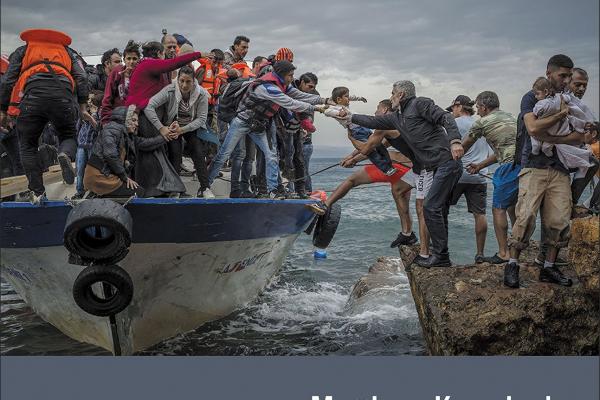THROUGH MOST OF my career at World Relief, welcoming refugees has been a fairly easy “sell” to local churches: Refugees have sympathetic stories of fleeing persecution and legal status. I spent most of my energy persuading Christians that the same scripture passages that compel us to welcome refugees also apply to undocumented immigrants.
In recent years, I have observed a shift. The questions after I speak to church groups increasingly focus on Muslims. Aren’t I concerned that Muslims will “take over” America? What percentage of refugees harbor terrorist sympathies? Was I aware, one man asked, that New York City was already under sharia law? (Fact check: It’s not.)
We may have reached the point where refugees are as controversial as undocumented immigrants. Certainly, many local churches do welcome refugees—and this relational proximity has disabused many Christians of misconceptions that all refugees are Muslim (among those resettled to the U.S., more are Christians) or that Muslims immigrants want to establish sharia as U.S. law. But evangelical churches that actively welcome refugees are in the minority. A Public Religion Research Institute poll finds that 74 percent of white evangelicals believe “the values of Islam are at odds with American values”—essentially, that Muslims cannot possibly become Americans. Six in 10 white mainline Protestants and white Catholics agree.
That’s why I highly recommend Matthew Kaemingk’s superb book Christian Hospitality and Muslim Immigration in an Age of Fear. Kaemingk, a Fuller Theological Seminary professor, offers a “third way” of Western Christian engagement with Islamic immigration, eschewing both “the antagonism of right-wing nationalism [and] the romanticism of left-wing multiculturalism.”
Evangelicals tend to be suspicious of an approach to Islam that focuses primarily on the similarities between Christianity and Islam. Theologically conservative Christians and Muslims alike believe that there are critically important differences in our beliefs.
But too many evangelicals have swung to the other side—an equally or more unbiblical response—essentially approaching Muslims as enemies. Kaemingk’s argument is that evangelicals’ exclusive commitment to Christ’s authority over every aspect of our lives mandates “an uncompromising commitment to love those who reject that lordship.” It is because we are committed to distinctly Christian beliefs that we should welcome and defend the rights of Muslims.
Kaemingk uses the Netherlands as a case study. It went through a cultural shift some years ago that the U.S. seems to be experiencing now: from it being socially unacceptable to publicly voice Islamophobic sentiments to a time when anti-Muslim rhetoric wins elections.
The early 20th century Dutch prime minister and theologian Abraham Kuyper is at the center of Kaemingk’s case for a “Christian pluralism” that compels Christians to extend radical hospitality and stand for the rights of Muslims. Kuyper was deeply committed to religious freedom for all—what “we want for ourselves we must not withhold from others!” he insisted. He strongly opposed efforts to establish religious hegemony, arguing that only Christ himself, not any church composed of his professed followers, was sovereign. Kaemingk challenges American evangelicals to adapt this approach: “As soon as evangelicals lay down their dreams of American cultural domination, they can pick up the more humble … dream of American pluralism, justice, and respectful contestation.”
I have only two serious concerns with the book. First, it might have arrived too late: We needed this message a decade ago, at least. And second, because it’s a thick, scholarly work, it’s not likely to be read by many of the people who most need its message. (The odds that the current occupant of the White House will engage Kuyperian theology are, I suspect, slim.) But that’s why I hope that you will read it, apply it by welcoming Muslim immigrants into your own life and community, and advocate for their rights and their well-being, both among fellow Christians and in the public square.

Got something to say about what you're reading? We value your feedback!

